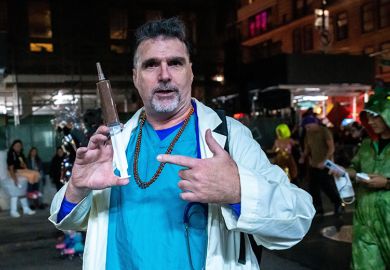The University of Lancaster has withdrawn a brief description of a PhD studentship from its internal newsletter in an incident that some have described as self-censorship.
Although the details disclosed were available on the internet, the article was pulled because consent to print it had not been sought from commercial sponsors.
The article in LU News said: "The CASE (Collaborative Awards in Science and Engineering) Jaguar Land Rover, supervised by Dr Utz Roedig and Prof Bahram Honary, will investigate how personal communicator to car communication, for example keyfobs, can be developed and improved to support applications such as burglar alarm notification or satellite navigation destination download."
A later edition of LU News carried a prominent announcement saying the earlier article had been "in breach of the non-disclosure agreement in place between Jaguar and Land Rover and the university in publicising confidential information without the required prior consent of Jaguar and Land Rover". The sponsors warned recipients of the earlier paper that there must be "no further exposure of this project resulting from this announcement".
Lancaster academics were quick to note that an advertisement for the studentship in Times Higher Education, still publicly available on the internet, carried far more detail on the research than LU News.
But the terms of the university's contract meant that consent had to be obtained for each new disclosure. The university alerted the sponsors to the breach.
"Universities are supposed to be about the pursuit of knowledge, and surely that pursuit crucially depends on the free sharing of knowledge and ideas," one academic said.
"If the blurring of distinctions between academic and commercial worlds are going to throw up more and more non-disclosure agreements, will this impact on the capacity of the academy to produce new knowledge in the first place?"
The decision to alert the sponsors and retract the article represented "a rather insidious form of self-censorship on an issue where it isn't at all clear why self-censorship should be necessary", the academic added.
A Lancaster spokesperson said: "Information was issued that was in breach of a confidentiality agreement. These protect commercially sensitive information and intellectual property of a sponsor. They should help knowledge transfer because without them, industry would be less willing to share information. Confidentiality agreements are standard practice in universities."
Register to continue
Why register?
- Registration is free and only takes a moment
- Once registered, you can read 3 articles a month
- Sign up for our newsletter
Subscribe
Or subscribe for unlimited access to:
- Unlimited access to news, views, insights & reviews
- Digital editions
- Digital access to THE’s university and college rankings analysis
Already registered or a current subscriber?



